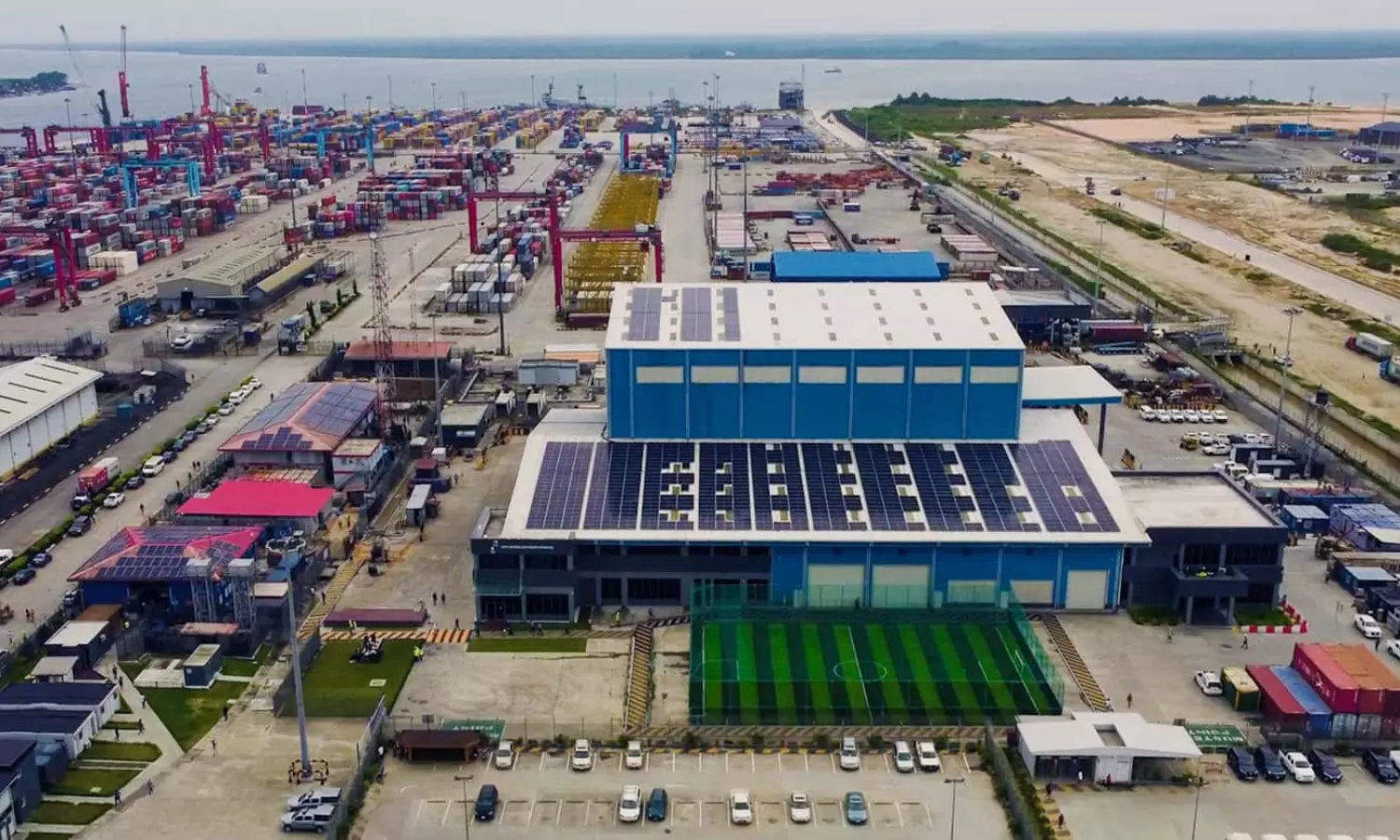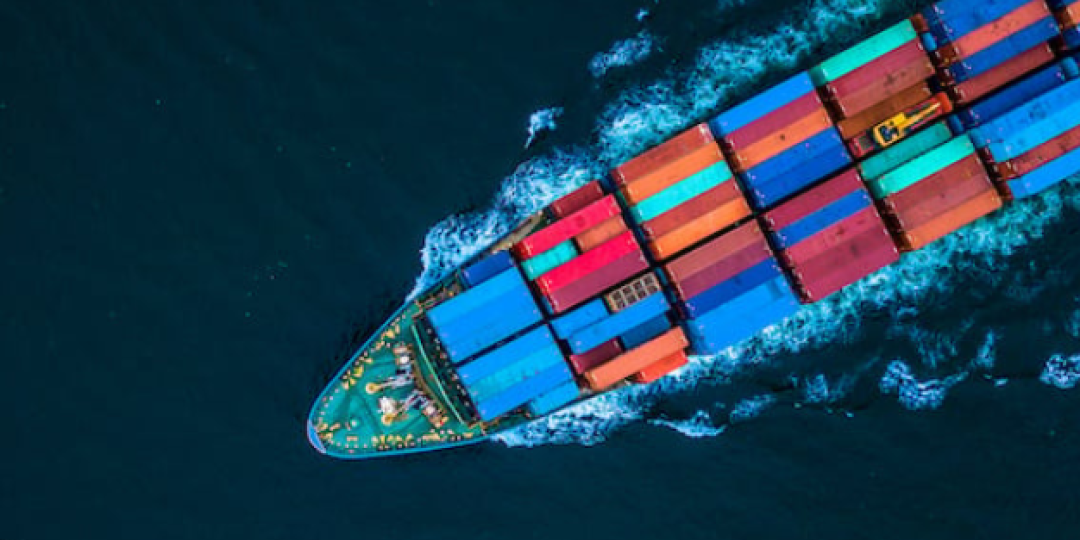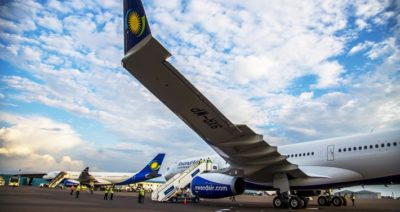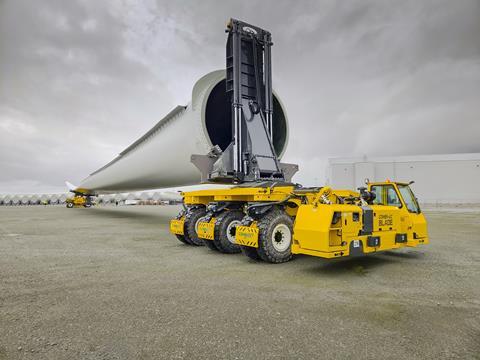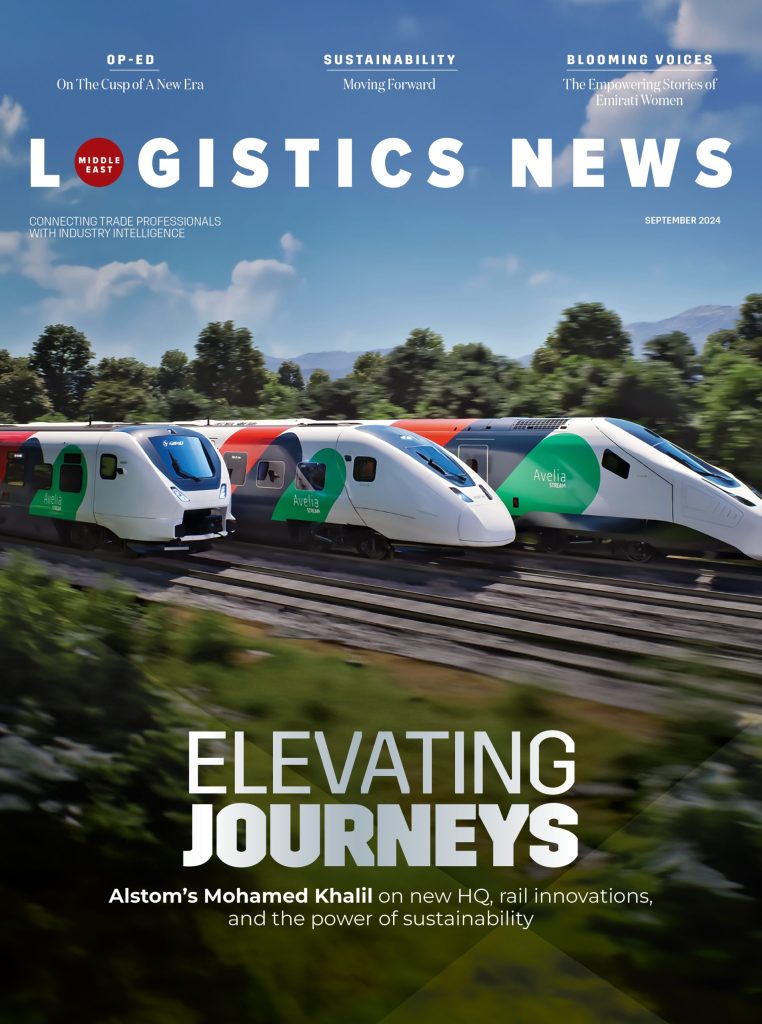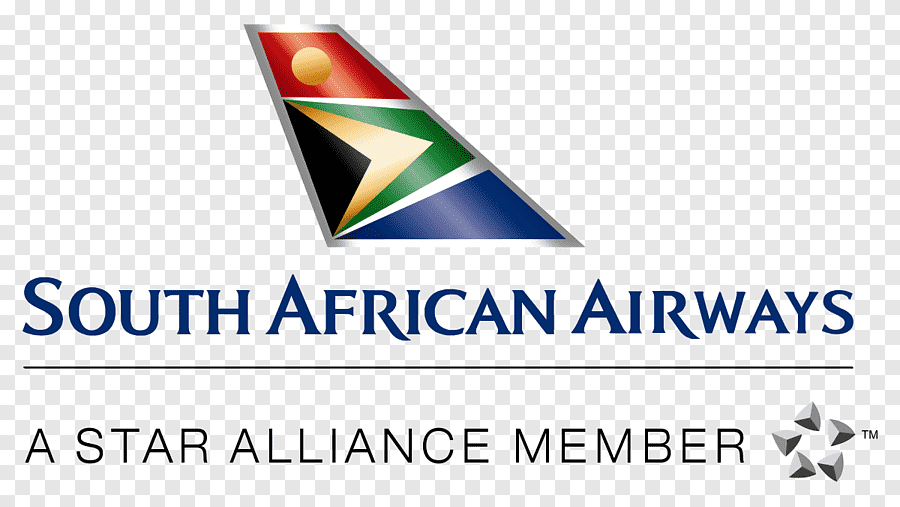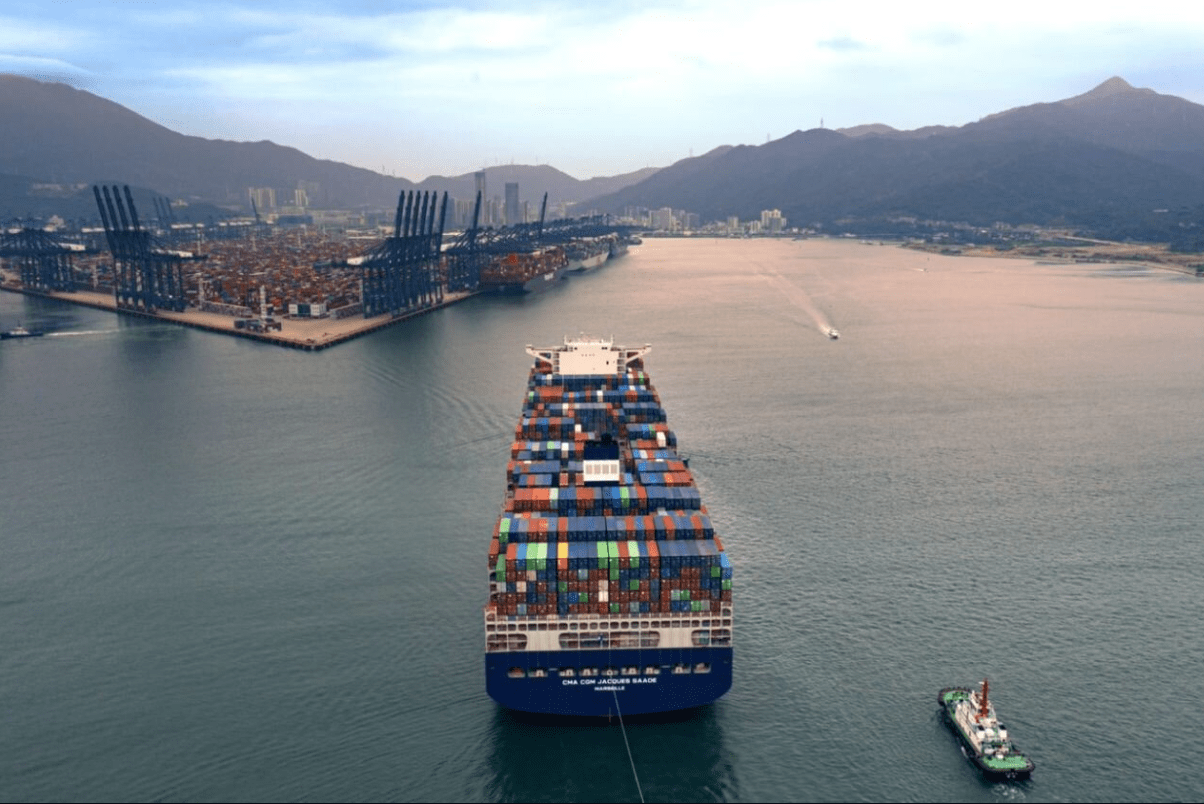Logistic

Agility Global is betting big on sustainable infrastructure
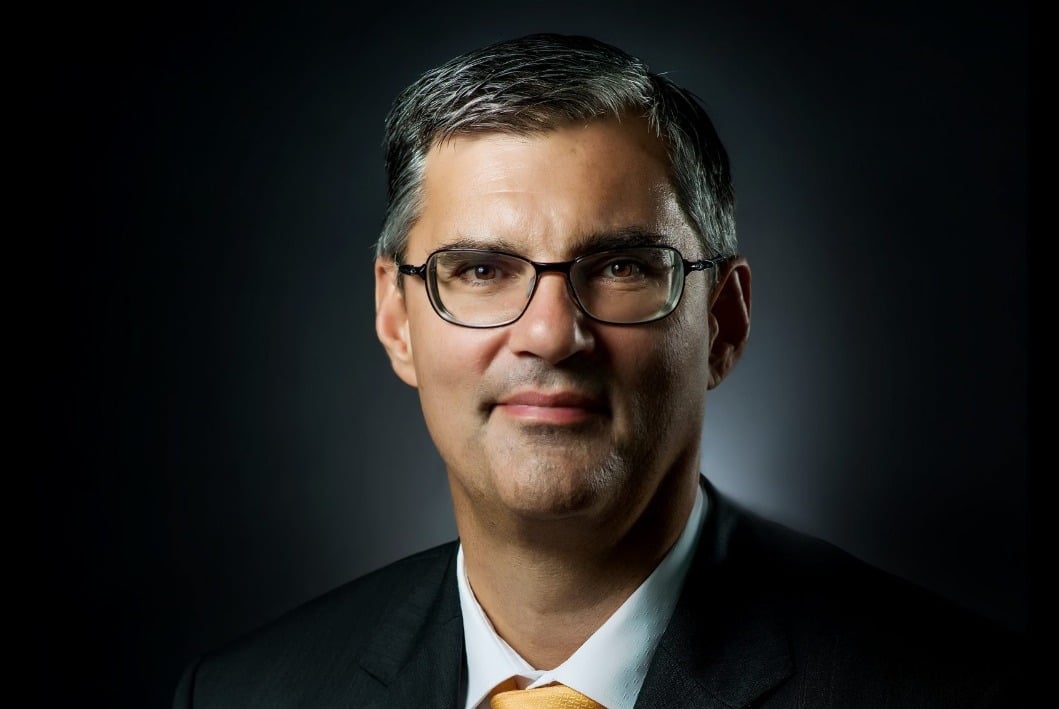
When I sat down with Tarek Sultan, Chairman of Agility Global, it quickly became clear that this was not going to be a conversation about trucks, warehouses, or port capacity. Instead, he was focused on something far broader and far bolder.
Sultan laid out a strategy that’s reshaping Agility Global from a legacy logistics giant into a global infrastructure and technology player. The company, which today owns the world’s largest aviation services company, a global energy business, and one of the Middle East and Africa’s largest industrial real estate platforms, is also using its ventures arm to invest in emerging technologies in everything from digital healthcare to green power.
Core business driving growth
Agility Global is continuing to grow; with the company reporting strong results in its latest earnings release.
Agility Global delivered $1.2 billion in revenue (+8% YoY), $97 million in EBIT (+5%), $181 million in EBITDA (+8%), and $24 million in net profit in Q2 2025.
The company’s three core owned and operated businesses—Menzies Aviation, Tristar Group, and Agility Logistics Parks (ALP)—reported solid growth, with momentum led mainly by Menzies and ALP.
Menzies, the world’s largest aviation services company, reported $691 million in revenue in Q2 (+9% YoY), with EBITDA and EBIT up 13% and 24%, respectively. Its ground handling and fuelling operations serviced ~1.5 million flights, and it expanded its executive lounge portfolio. Growth was driven by increased volumes from new operations in Portugal and Spain, stronger yields, and robust cargo.
In August, Menzies announced that it had completed its $305m acquisition of G2 Secure Staff, an aviation service partner of choice for major airlines across the United States. The deal strengthens Menzies position as the world’s largest aviation services provider, operating at 350 airports in 65 countries, and is expected to boost Menzies’ Group revenue by 20% to more than $3.1 billion, based on FY2024 figures.
Tristar, the group’s energy logistics arm, posted Q2 revenue of $346 million, $64 million in EBITDA, and $33 million in EBIT. Revenue growth was led by its retail fuel business in Sri Lanka, while maritime headwinds tempered EBIT expansion.
Agility Logistics Parks (ALP) recorded $14 million in Q2 revenue (+13% YoY) with $10 million in EBIT. Saudi occupancy remains above 90% (notably Riyadh), and ~226,000 sqm of new warehousing is under development, with some units already delivered and the rest due in 2025.
Beyond its operating businesses, Agility Global also holds minority stakes in listed and unlisted companies. As of 30 June 2025, the investment segment had a total asset value of ~$5.5 billion; total assets were $12.7 billion and equity was $5.8 billion attributable to the parent’s shareholders. DSV remains the largest single investment (~36% of total assets).
Agility is also a key investor in Reem Mall on Abu Dhabi’s Reem Island. As of June 2025, ~66% of GLA was open and trading and ~14% under fit-out (effective leased ~80%); by July, proposals covered an additional ~4% of GLA. Footfall and tenant sales hit consecutive records in May–June.
The company also continues to make notable strides in sustainability, with over 84% of businesses by total revenue and accounting for 90%+ of total emissions, making net-zero commitments. Menzies became the first major aviation services firm with Science Based Targets Initiative-approved climate goals, while Tristar prepares to launch the GCC’s first hybrid electric barge.
Innovation through technology
Agility Global’s venture arm is investing in a growing portfolio of emerging technology companies across a number of sectors.
This includes a foray into energy transition, healthcare, and more, leveraging advanced digital solutions and artificial intelligence. Sultan frames this move succinctly, “You can’t do anything great these days without impacting people’s health.”
One of Agility Global’s healthcare investments is in AiZtech Labs, a Canadian health-tech innovator, who has developed iSelfie™, a breakthrough AI-driven wellness platform that transforms a simple smartphone selfie or short facial video into real-time vital sign insights. Earlier this year, it was piloted across the Makkah Health Cluster, including King Abdullah Medical City, enabling rapid, contactless patient screening. The trial supports Saudi Vision 2030 by advancing digital healthcare transformation.
For Sultan, the move into healthcare is strategic. Beyond addressing a critical public health need, it integrates seamlessly into the supply chain ecosystem. Agility Global’s extensive supply chain network across 120+ countries positions it uniquely to rapidly scale such healthcare innovations globally.
Powering the AI-driven future
As Agility Global looks into new areas of investment, sustainability and technology are no longer separate pillars—they are converging to support the infrastructure of tomorrow. One of the company’s most compelling innovations sits at the crossroads of both: a 3D-printed generator capable of running on over 20 types of fuel, including ammonia and hydrogen.
“We have invested in a company, Hyliion, that produces a generator from a 3D printer that uses 20 different types of fuels—from ammonia to hydrogen to all the hydrocarbons,” Sultan said. “Data centres won’t happen unless there’s enough electricity to drive them. And right now, if you’re waiting for new generator sets to power data centres, you’re potentially waiting three or four years.”
This cutting-edge solution offers a fast, flexible and greener alternative to traditional power sources—something critically important in today’s data-hungry world. It also showcases how Agility Global is positioning itself not just as an investor in infrastructure but as an enabler of the next wave of digital transformation.
The company’s investments go beyond energy generation. Agility Global is also targeting the efficiency of data centre operations themselves. “We’ve invested in technology that uses AI to significantly reduce power consumption in data centres,” Sultan explained. “Reducing power consumption by 10% to 15% represents huge environmental and economic benefits.”
With AI adoption accelerating, demand for processing power and secure data infrastructure has surged. Sultan believes countries with abundant energy access, like the US, Saudi Arabia, and the UAE, are poised to lead this race. “We’re focused on being a low-cost operator and using proprietary technologies to ensure we’re first in line,” he said. “Those who get in line first can lock up demand and supply, closing the door on competitors.”
Together, these investments illustrate Agility Global’s future-forward strategy: building not just the supply chains of today but the intelligent, sustainable infrastructure of tomorrow.
Building a tech ecosystem in Abu Dhabi
Agility Global’s foray into healthcare, technology and AI-driven infrastructure is not happening in isolation—it’s deeply rooted in its growing presence in Abu Dhabi. For Sultan, the emirate offers a launchpad for global innovation.
“We have main business elements, but we also play an important role in incubating new businesses and technologies,” Sultan shared. That role is being actively realised in Abu Dhabi, where Agility Global is tapping into a rapidly expanding tech ecosystem designed to attract and accelerate high-impact startups.
The company’s proximity to innovation powerhouses like Abu Dhabi Global Market (ADGM) and Hub71—two of the UAE’s most prominent tech and finance-free zones—provides a strategic advantage. Hub71, in particular, has become a magnet for early-stage and growth-stage tech companies, offering regulatory support, funding incentives, and market access. Agility Global’s involvement is not limited to passive investment. “We can help these companies accelerate and develop their presence here in Abu Dhabi,” Sultan explained, “providing a face to the world thanks to our extensive global network.”
That global network spans operations in more than six continents —an unmatched platform for emerging tech companies seeking to internationalise. Agility Global offers what many startups lack: boots on the ground, deep B2B connections, and supply chain infrastructure that can be mobilised across sectors and continents.
This supportive ecosystem is essential to Sultan’s broader vision for Agility Global. It’s not merely about investing in startups for returns; it’s about creating an integrated pipeline of innovation that feeds into Agility Global’s evolving infrastructure portfolio—be it healthcare, data centres, or sustainable logistics. In this way, Abu Dhabi becomes not only a strategic geographic hub but a critical node in Agility Global’s mission to shape the future of trade and technology.
Logistics, tech, and wellbeing
Agility Global’s expanding presence in sectors like healthcare, data infrastructure, and renewable energy may seem like a departure from its logistics legacy. Still, to Sultan, it’s a natural progression driven by global shifts in how value is created and delivered.
“Everything we do, we look at on a global basis,” Sultan explained. “Healthcare, green energy, AI-powered data centres—these aren’t isolated ventures. They’re interconnected strategic moves designed to position Agility Global as an indispensable player in the infrastructure of the future.”
What sets Agility Global apart isn’t just its presence in these emerging sectors but how it orchestrates them together through its global platform. The company’s logistics DNA—rooted in mobility, connectivity, and cross-border operations—is now being applied to enable systems that serve human development at scale.
Rather than staying confined to transport and warehousing, Agility Global is creating infrastructure that underpins digital health access, data security, and clean energy availability—all while reinforcing economic resilience. This interconnected strategy reflects a broader recognition: modern logistics is no longer just physical movement—it’s the connective tissue behind everything from public health systems to smart cities.
Creating long-term shareholder value
Despite recent dips in profitability and a year-on-year drop in earnings per share, points raised during the company’s AGM in April, Sultan remains resolute in Agility Global’s long-term trajectory. The short-term market metrics, he believes, don’t tell the full story.
“Our businesses fundamentally performed really well,” he said. “On an operating level, all businesses exceeded budgets and expectations. FY 2024 EBITDA reached almost $600 million, and that figure doesn’t even include our valuable stake in DSV.”
To Sultan, what matters most is the foundation Agility Global is building. He invoked a well-known Warren Buffett analogy to frame his view, “In the short run, the stock market is a popularity contest. In the long run, it’s a weighing machine. We’re creating the heavy-duty factors that will resonate in our favour going forward.”
As he sees it, that weight lies in Agility Global’s transformation into a multi-dimensional player—one that builds value not just through its business operations but through strategic investments in the systems shaping future economies: health, clean energy, and digital infrastructure.
Agility Global’s new investments are about evolving with purpose. Sultan views this moment as an inflection point—where logistics meets impact, and global networks meet human needs.
“Our core expertise in logistics remains crucial,” he affirmed. “But today we’re about more than moving goods. We’re about harnessing technology and innovation to positively impact people’s health and the environment, creating real and lasting global value. That’s how you do something truly great.”






